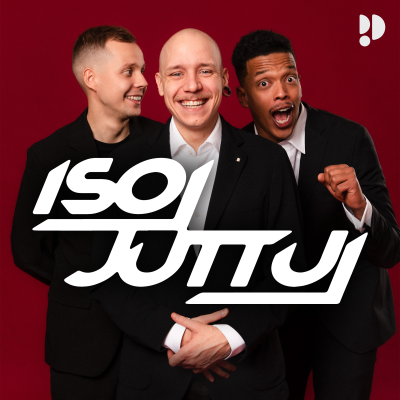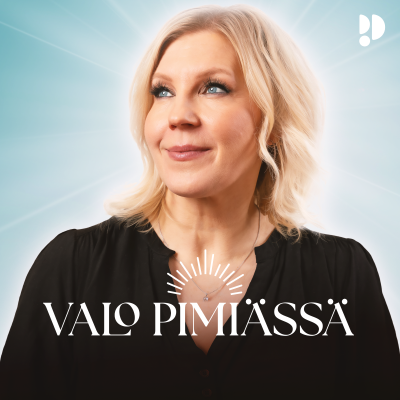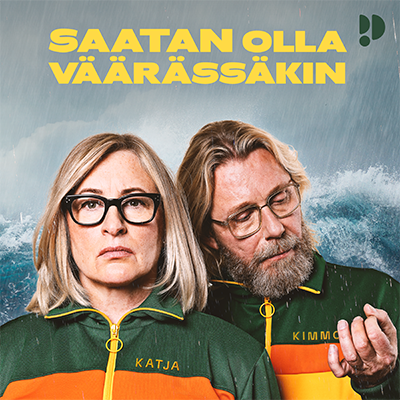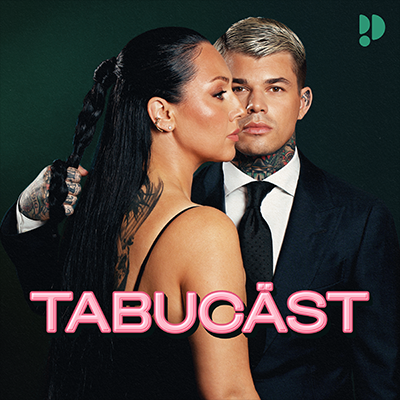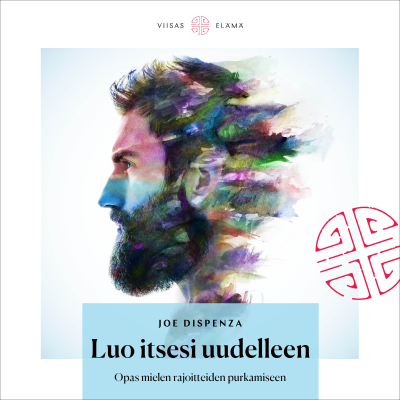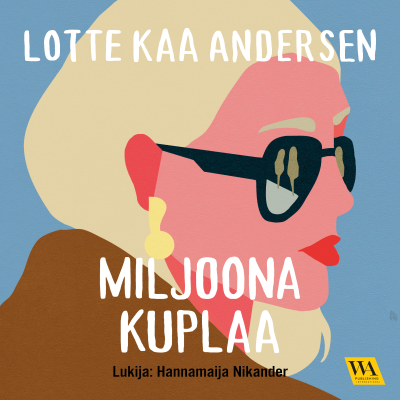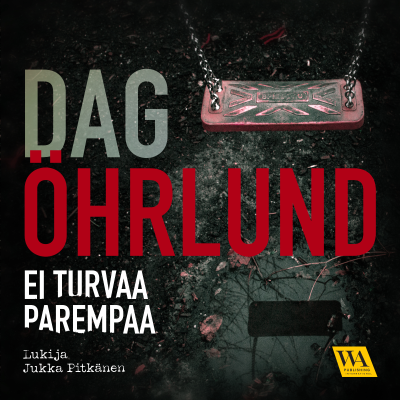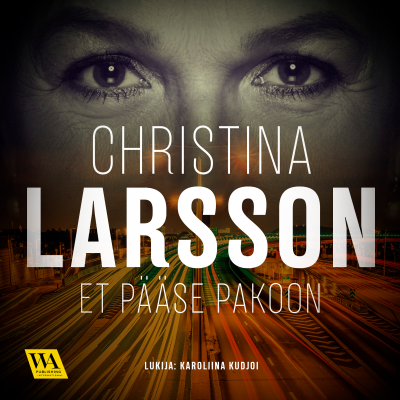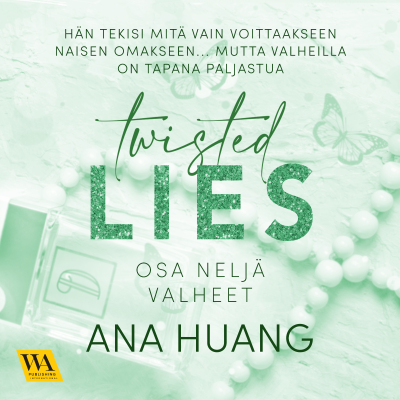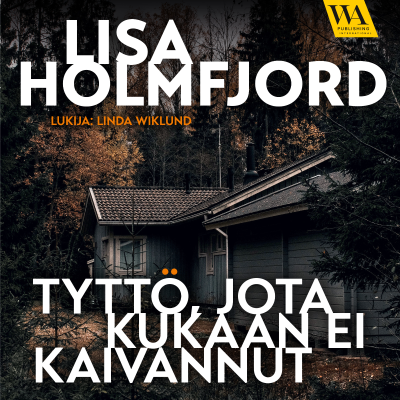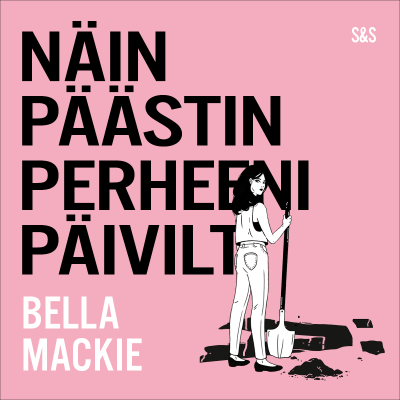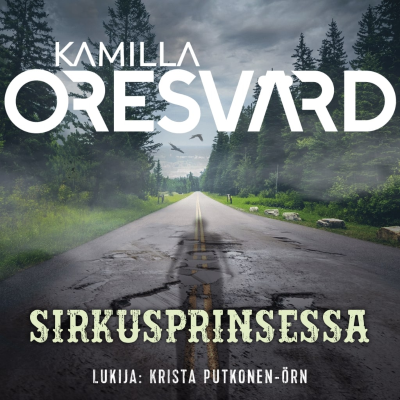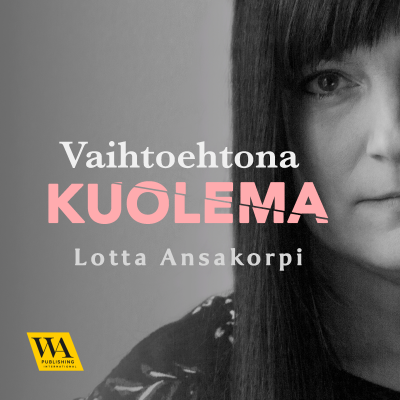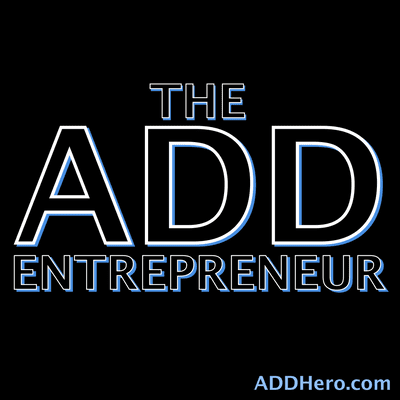
ADD Hero
Podcast by Nick Eubanks
Rajoitettu tarjous
2 kuukautta hintaan 1 €
Sitten 7,99 € / kuukausiPeru milloin tahansa.
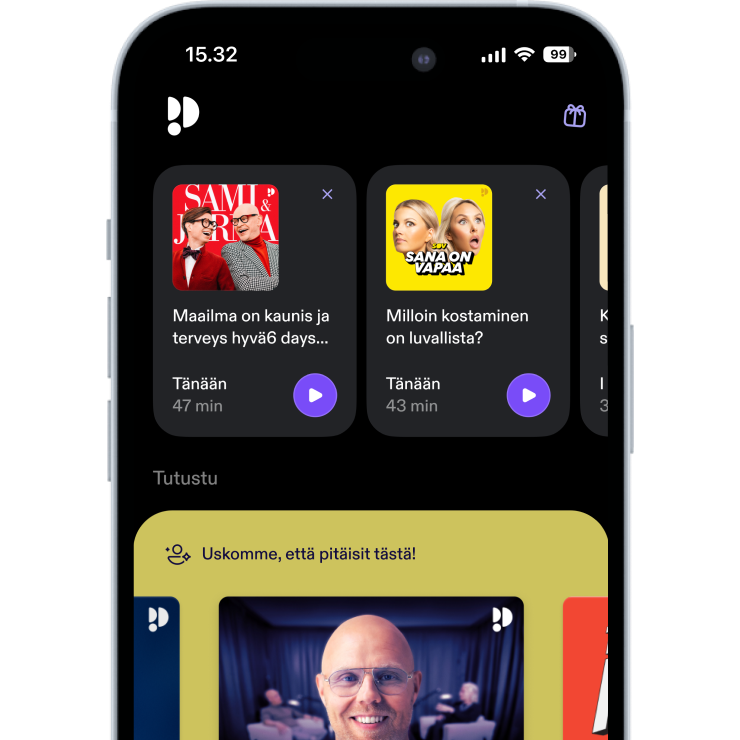
Enemmän kuin miljoona kuuntelijaa
Tulet rakastamaan Podimoa, etkä ole ainoa
Arvioitu 4.7 App Storessa
Lisää ADD Hero
Supercharge Your ADD into Productivity
Kaikki jaksot
3 jaksotNick: Hey, this is Nick Eubanks. Welcome to another episode of the ADD Entrepreneur [http://addhero.com/category/podcast]. Today, we are joined by the founder of Juris Digital, Casey Meraz. He is based out of Greenwood Village, Colorado. And Juris Digital specializes in doing digital support services and marketing for law firms. How are you doing, Casey? Casey: Pretty good, Nick. Thanks for having me. I appreciate it. Nick: No, I appreciate you coming on, man. I usually butcher this sort of the bio’s of the folks that I’ve talked to, thus far. So, if you wanna give a better introduction of you and what your firm does, what your agency does, I’d say feel free to go ahead. Casey: Sure, okay. Well, you did a pretty good job. We, basically, do a whole service digital marketing services for law firms. So, everything from website design to SEO, SEM, anything we can do increase our visibility online. Nick: How long has the company been around? Casey: So, we originally started under the brand Ethical SEO Consulting, and we’ve been around for six years now. Nick: Oh, nice. Congratulations, man. Casey: Thank you. Nick: Was this sort of the start of your entrepreneurial journey? Or did you have other ventures before you’ve gotten to this one? Casey: Oh, no, no. Yeah, I’ve had a lot of other ventures along the way, so as a kid, I was interested in paintballs, started a paintball store locally. And then, that kind of morphed into my next venture which was computer repair, completely… Nick: Nice. Casey: …in a different direction and I did that for a few years, and started a wireless internet company. And then currently, I am pretty much only doing this, but I am an active partner in Airsoft store, as well, now. Nick: Nice. I am a very avid Airsoft enthusiast, and I actually played paintball on a team when I was in high school. Casey: Oh, nice. Yeah, me, too. So that’s a lot of fun. Nick: Yeah, super funny, man. And the theme is definitely from, you know, all the entrepreneurs I’ve talked to that have, you know, ADHD, or some flavor of ADD [http://addhero.com/what-is-add/] – that nobody is on their first venture or nobody’s doing just one thing. That segues actually really nicely into sort of where I’d like to start, which is, you know, HOW OLD WERE YOU WHEN YOU STARTED DISPLAYING SCIENCE OF…WHAT THEY THEN CALLED ADD, AND NOW I THINK IT’S JUST MORE FORMALLY ENCAPSULATED BY ADHD? Casey: Sure. So, I definitely had the symptoms all of my life as far as identification goes. You know, I struggle with the school actually quite a bit in high school, middle school, and that type of thing, and it wasn’t until I found something I was kind of interested in in college that I was able to really focus. So, it started probably around 15, I guess, but just recently diagnosed actually. Nick: No kidding. So, who would you say was the first person that noticed sort of the symptoms or was it you? Casey: Well, it was definitely probably me but also my teachers. I feel like they always had feedback and just certain things didn’t come easy to me, so especially like Math, for example, is something that I had struggled with until I had to learn a very specific way to teach myself. Nick: Interesting. SO WHAT DROVE YOU TO FINALLY GET, YOU KNOW, PROFESSIONALLY TESTED? Casey: Really, that I just felt like I could do so much more if I knew I could maintain my focus a little bit more, and could just understand myself better. So, I just felt like I could get more done. Nick: So were you looking for a more of a medical solution just to sort of help support, obviously, you know, the ins and outs of running a business? Casey: Initially, yes, but also just, you know, educational standpoint. From an educational standpoint, as well. I just wanted to learn what things I can do non-medically that would help me just perform better and stay more focused. Nick: Oh, very cool. Yeah, that’s very much the route that I’ve been going. I just finished like an e-book very much on like, you know, here’s all the different strategies that I sort of, taking shoes and take off the shelves, to sort of help get me through my day, and my day-to-day. And, you know, obviously some days are much better than others, but my personal story that’s gone too far afield. You know, my parents decided when the doctors came back, especially, the people in my school system, the time I was seven or eight were like, “Oh, he need like that. Your son’s out of control. He’s ruined…, They made a decision…the time not for me, you know, hopefully not to develop a chemical dependency at least at such a young age. Again, works very well. SO HOW WOULD YOU SAY THAT HAVING ADD AS A KID, AND AS A TEENAGER, AND AS A YOUNG ADULT, WHAT KIND OF AFFECT DID THAT HAVE ON YOUR RELATIONSHIPS? Only and the reason I ask is, it’s some people I’ve talked to, it’s not meant to see the negative question there, but some people actually said that it really helped because they were able to connect with different types of kids because of how outgoing sometimes we are and so on, and so forth. Casey: Mm-hmm, yeah. If from a social aspect, I never really had too many problems. I guess, making friends or connecting with people, but I learned recently that I’ve kind of taken a different direction as far as the approach I took. What I mean by that, I guess, is that I’m always hearing, or listening, or thinking about 10 different things at once I feel like. And so, I’m always reacting to people’s emotions, their non-verbal cues and verbal cues, and just kind of making an assumption based on what I think they’re thinking at that moment. So, I guess I kind of developed a little bit of a super power of reading people which allowed me to make a lot more friends, I would say, which is kind of interesting. Nick: That’s a really cool insight. You’re actually the first person that has mentioned sort of the ability to pick up again on non-verbal cues and sort of get a sense for what people are thinking and how people are feeling in the moment, which I would totally… I think that you just honed in on one of the practical applications of a skill that seems to be pretty common at least with people whose brains are wired with ADD, but then are also wired to be entrepreneurs, which is the ability to sort of observe or process large amounts of information very quickly. Casey: Yeah, definitely. And, you know, sometimes there’s also a downside to that, of course, as well. So, I can get distracted easily or, you know, not retain very much, as well. Nick: Yeah, both are super common symptoms, I’m unlearning myself. WHAT WOULD YOU SAY IS THE MOST IDENTIFYING CHARACTERISTIC THAT YOU SAW IN YOURSELF, YOU KNOW, BETWEEN SORT OF THEN AND NOW IF YOU HAD TO GO AND RETROSPECT BACK TO, YOU KNOW, YOUR CHILDHOOD TO NOW SORT OF LOOKING BACK OVER, SAY, THE PAST 20 YEARS OR SO? Casey: Sure, so one thing that sticks out to me is just thinking about homework or goals, things that I’m trying to complete. I was never somebody that would be able to do that, you know, like work on a project for a week if I was uninterested, and I’d wait until the last minute, and I would get it done just because I had to, I had a motivation that it had to be done. But I’ve kind of changed and switched to focus on projects that interest me now. And now when I do that, I’m really able to focus pretty much all the time, and really work towards completing those goals without the pressure of whatever those other deadlines are. Nick: Yeah, so you’re talking about sort of the hyper focused that, you know, people like us tend to have devoted to just sort of flip on when it’s necessary, but up until that point, you know, God help us. Casey: Yeah, exactly. Yup. Nick: So you said you were recently diagnosed professionally. Are you taking any medication now to sort of help maintain focus? Casey: So, I did try some Adderall [http://addhero.com/side-effects-adderall/] which actually did help quite a bit, but I’m not a fan of taking medications in general. I don’t even take Tylenol like if I have headache. So, I really try to stay away from that and I’m looking for more natural things that I can do to help me be more successful. Nick: Awesome. Yeah, I feel exactly the same way. You know, I’d probably have a little bit more coffee than I should, and I know I should be staying away from it. It’s not good for people like us, but that’s about as far as I’ll go. So, the next…I mean, I usually, at this point, I would ask what your first business idea was, so I guess based on sort of how the conversation started, it would make more sense for me to ask; WAS THE PAINTBALL BUSINESS THE FIRST BUSINESS IDEA THAT YOU HAD? Or do you have something even before that, like even more so as a child? Casey: I’ve always thought about things as a child, but paintball was definitely the first one that I would say I took action on. You know, as a kid, I remember trying to create like a local newspaper from my mom’s printer that I would just type up with pretty useless information but, you know, something I thought I could sell or get subscribers to. So, you know, just probably like a 10-year-old or something. Nick: Yeah, mine was selling my mom’s iced tea on the corner. Casey: Oh, nice. That’s awesome. Nick: Again, I think it’s just that, you know, that entrepreneurial bug I think is in everybody whether you’re ADD or not. So I love hearing about people’s sort of, you know, people’s first businesses, especially, people who have built out real established businesses at this point in their life. It’s funny to hear that people reflect on sort of some of those first hair brain ideas. WHO WAS YOUR BIGGEST ENTREPRENEURIAL INFLUENCE WHILE YOU WERE GROWING UP AND WHO IS IT NOW? Casey: Good question. I think initially it was Bill Gates just because I couldn’t even have a really good reason to that other than, you know, he was rich, I think. And then as I started just getting more into business, or many business books, and things like that, I think my hero right now is kind of Elon Musk and also Richard Branson. I’m a big fan of him, as well. Nick: Branson has ADD. Casey: Oh, he does? Okay, I actually didn’t know that. Wow. Well, that’s great. And, you know, he’s always…I’ve read a couple of his books and, you know, I definitely follow him online as well. Nick: Yeah, and I’m a huge fan of Musk. I feel like he definitely…he is just a different brain. I don’t know if what he has. I don’t know, if you wanna call it “Hero Syndrome.” I don’t if he’s been diagnosed yet or not, but, yeah, I just saw a video of the first test track today of him in the first test slide on the actual production testing facility in Texas for the Hyperloop, where the sled hit a 125 mile an hour. Just wild. Casey: Wow. That’s awesome. Yeah, I love that stuff, and, you know, I love technologies. So, you know, his brains definitely had it in a really amazing direction. Nick: Yes, it’s understatement. So, it’s awesome because you don’t…you know, you look for other sort of rituals and other strategies for maintaining your focus and staying productive. WHAT ROUTINES OR RITUALS DO YOU PRACTICE OR TRY TO PRACTICE TO STAY PRODUCTIVE? Casey: So, the things that’s helped me the most recently is actually starting a bullet journal. I’ve always been a list guy. I have to create lists and tasks. And, recently, my wife told me about bullet journaling and made me watch some YouTube videos on it, and I picked that pretty quickly, and I’ve already been able to have a lot more focus, separate things into tasks on paper as opposed on computers because like even though I use base camp, for example, for one of my business, you know, I’m just really not that good with it personally, but if I write something down, I’m gonna get it done. Nick: Yeah. No, that’s a strategy I absolutely use, as well. It’s writing everything down, and then actually breaking them up into smaller sort of groupings of tasks, and then putting them somewhere. Like I’ve realized they have to be visible. It has to like…it was fine through sticky notes and now I use…there’s like a cool browser extension called Momentum Dash, so like every time you open a new browser tab, I get hit in the face of my to-do list. Casey: Oh, nice. Nick: That’s been really helpful. Casey: I’m gonna have to check that out. Nick: I’m gonna send you a book when we get off the line here, and you might find it interesting. And if not, you’re not gonna hurt my feelings, so that’s all good. Casey: Got it. DO YOU HAVE ANY CORKY HABITS OR BEHAVIORS THAT YOU’VE NOTICED? Casey: Oh, that’s a good one. Nothing comes to mind. I’m sure there’s plenty and I’m sure my wife could tell you a million, but, yeah, nothing that comes to mind right away. I guess, really, maybe just, you know, focus-based like I can be talking to somebody, but also listening to the conversation happening next to me, and the one, you know, a few people down. And, you know, that’s just like a really annoying habit more than anything else because that’s probably one of the reasons I don’t retain as much as I like because I’m listening to too many things. Nick: I think I know what you mean. HOW DO YOU GET ALONG WITH OTHER FOLKS YOU’VE MET THAT HAVE ADD? AND DO YOU HAVE ANY EMPLOYEES THAT HAVE ADD? Casey: So, I don’t have any employees that have ADD. And I actually don’t know if any of friends do. So, I can’t really answer that question because nobody has really told me, and I haven’t told that many people yet. Nick: No kidding. That’s a really interesting fact in it of itself. I mean, is it because of sort of the social stigma that still exists? Casey: Perhaps. I mean, I don’t care. I’m honest and open and I don’t mid sharing it, it’s just not something that I’ve had the opportunity to discuss too much yet. And, you know, yeah, there’s definitely a social stigma there and some people, you know, may not believe it exists and things like that too, so. Nick: Yeah, and, especially when you’re in leadership role. You know what I mean? As the card carrying founder of the company, it can be tough to sort of wear this badge of honor. Casey: Yeah, for sure. Nick: What would you say are your most and least favorite aspects of ADD? Casey: My most is definitely in the productivity side. Just feeling like I’m able to complete more or I don’t get overwhelmed easily. I feel like that’s probably related to the system how we’re, you know… Nick: I think you’re right. Casey: …a lot of people…people see like a huge hurdle in the way, and I just think through it and say, > “Okay, well, this is how we’re gonna tackle it. You know, it’s really not that big of a deal.” So it doesn’t stress me out and that’s a big thing. And then, I guess as far as, you know, again, the things that or the most annoying to me is just not paying enough attention, I think, to people. Nick: Like your wife, for example? Because I know, for me, I drive my wife crazy and… Casey: Yeah, same here. Nick: It’s a daily struggle. That’s a story for another day. WOULD YOU SAY THAT ADD HAS HELPED YOU TO GROW YOUR BUSINESS? Casey: Definitely. Just because there’s so many challenges that I’ve set out to do that a lot of people thought were impossible or too difficult and, you know, not saying that it was easy, but it’s definitely things I was able to work through and think through. And even in just running a business in general. Problems happen and they come up, and some of them seem like it’s the end of the world, and you have to have a mind that can deal with those, and think through that logically. Nick: That’s a fantastic example that I had not thought of before as a potential characteristic related to ADD. Just the idea…and I think you’re probably right. The more I think about the people that I know, and the people I’m continuing to meet that the ability to not get overwhelmed maybe it’s because your brain is just overwhelmed at all times that you’re just used to it. It’s like sort of the standard operating procedure for the ADD brain, it’s just a hundred things in an hour all at the same time, and you learn to control it. I had not considered that before, but that’s actually a really cool insight. Casey: Cool, yeah. I know, I mean that’s definitely how I feel. I feel that all of this is related, but… WHAT’S YOUR FAVORITE BOOK ON EITHER BUSINESS OR PRODUCTIVITY, AND WHY? Casey: Let’s see here. Actually, I think one of the reasons that really changed me was actually “The 4-Hour Workweek,” so that’s kind of one that made me start thinking like…because, you know, let me back up a second. So before I started my agency, I worked with Intuit, and I helped build their SEO programs for small businesses. And I just remember working there, you’re supposed to have 40-hour work week and get all this work done, but I was able to get work done in maybe a quarter of time that it was taking other people longer. And I didn’t understand that. It didn’t make sense to me, but I was like, “Hey, that’s cool.” I can work on my own stuff or do whatever and still look really good for corporate America. And, you know, I read “The 4-Hour Workweek,” and then I was like, “Oh, wait. I can use virtual assistance or, you know, I don’t have to be working 40 hours a week. I can do more working for myself in less time. And so, that was very insightful. And since then, I’ve read a lot of different books that are great business books too, I think. But I really like “The Power of Habit” actually, just as far as, you know, helping myself to learn a little bit more about psychology of marketing in creating habits for myself and learning what those triggers are that helps my ADD brain, as well. And then, there was one other that I was thinking of. I think it’s by Jim Collins. Oh, I can’t remember the name of it. Nick: “Good to Great” or “Great by Choice?” Casey: “Good to Great.” Yep, “Good to Great.” That’s it. So, I love that book, too. Nick: Yeah, those are both excellent. No, that’s an awesome answer and I’m definitely gonna add “The Power of Habit” to the list because I have not read that one yet. Casey: Yeah, no, it’s great. I’ve read so many different ones and those are the top three that stick out to me, at least for now. Nick: No, that’s a good list. This is the last question. WHAT ADVICE WOULD YOU GIVE TO AN ASPIRING ENTREPRENEUR WITH ADD? Casey: Really, just starts, I don’t know, to realize that the world that doesn’t run the way that maybe a lot of people try to convince you it does, you know, you don’t have to have that job and work 9:00 to 5:00. You know, you can do more than other people. You can do better than other people. And you just really have to focus on what works for you. I’m sure everybody is a little bit different on how they can be productive, but if you find something that you’re passionate about, you know, I guarantee that with a little structure that you can, you know, take that to levels unseen. Nick: That’s a great piece of advice, man. Well, hey, thank you so much for taking the time out of your day. I can completely understand how frantically busy Mondays are, especially, in the agency world. So, I really appreciate this and I’m excited to see what people think about your story. Casey: Absolutely, Nick. Well, I appreciate the opportunity, and I’m happy to share it, of course, and promote that as well, so I just appreciate it. Nick: Now, that’s awesome, man. Thank you very much.
Hey everybody, welcome to episode number two of The A.D.D. Entrepreneur. Today I am thrilled to be joined by Alex Urevick-Ackelsberg, the Founder of Zivtech [https://www.zivtech.com/], a Philly-based digital strategy company specializing in application and product development, who also obviously happens to have ADD [http://addhero.com/what-is-add/]. Thanks for hopping on here, Alex. Alex: Absolutely, happy to join. Nick: That said, again, I wanna make sure…I don’t know if you wanna add anything on to what it is you do because what we were just talking about, I feel like I definitely did not even scratch the surface on all of the cool stuff that you guys were doing at this point. Alex: No, it’s cool, yeah. Zivtech is a nine-year-old web development, design, training, strategy company focused on products and web applications for everything from startups to Fortune, whatever, 50 companies, and we work with all sorts of open source tools as well as software as a service, and occasionally even proprietary software to help our customers innovate in a digital sort of space. Nick:Thank you for that, that’s obviously way more holistic way, I would say, to deliver. Yeah man, just thank you so much for coming on here. I truly appreciate you guys…it’s amazing how busy everybody is, especially founders, and just…I’m very, very honored that people are willing to take their time out, especially, you know, when we’re easily as distracted as we are. Alex: Yeah, well, I think that that’s also the way that you’re gonna get plenty of distracted people to sign up because they’re like, ooh, that sounds distracting, I like. And it’s definitely interesting from what I’m used to doing at four o’clock on a Monday, so yeah, that sounds great. Nick: Okay. With that said, I guess we will just dive right in. So the first question I have for you is, HOW OLD WERE YOU WHEN YOU STARTED DISPLAYING SIGNS OF ADD? Alex: I think as soon as I started school. I went to a sort of alternative school here in Philadelphia called Project Learn. So they didn’t really have report cards, but I did see what they would do, is they would give you sort of feedback, and the feedback I always got from kindergarten on to sixth grade when I stopped going there was always some flavor of, Alex is very enthusiastic, he always seems very excited and eager to talk about what we’re gonna talk about, but he never lets anyone else have a turn and he never waits his turn, and he’s always a little loud and interrupting. So you know, looking back on it, I don’t think people were diagnosed that early or as often with it back then. But for sure, it’s been a personality trait since day one, and it starts to…started immediately to show itself as soon as I came in contact with the world outside of my parents’ and grandparents’ houses. Nick: So that perfectly segues into the next question which was, WHO WOULD YOU SAY WAS THE PERSON WHO NOTICED, IF IT WASN’T YOUR PARENTS? Alex: Again, I don’t think like back then in the, I guess, ’70s, ’80s, I guess mostly…no, it would have been the ’80s, I don’t think it was as well…or I don’t think it was diagnosed as often as it is today. So, you know, I think they just thought I was eager and excited, and I was lucky enough to find myself in a school that really was supportive of people that needed to have a little more, or maybe that had a little more energy and excitement towards what they were doing, and were a little bit more all over the place. So I think I just ended up in the right situation early on in life so that it didn’t need to be…it wasn’t an issue. And then later on in life, I think…you know, maybe like high school and on, when it did start to become more of an issue for me, it was also mixed in with like other issues, mainly that I was depressed, and it was also a rough time in the city, so it seems pretty natural to be depressed. But you know, I don’t think that I was just depressed because of the situation I was in, I think I was just clinically depressed. So, it sort of mixed in…it sort of meshed in with that. And so I think looking back at high school, it was definitely sort of the depression that was the focus of my attention, my parents’ attention, and eventually sort of got that behind me later on in life, and then was still left with the ADD, and that’s when it really became apparent, like oh, this is its own thing that I really need to deal with on its own. Nick: It’s incredible how common ADD and depression [http://addhero.com/add-depression/] actually is. I’ve been doing more and more reading on it, and the only thing potentially more common than somebody having…especially ADD, and having sort of…dealing with bouts of depression throughout life is that they’re often very hard to diagnose [http://addhero.com/add-symptoms/], because sometimes ADD is driving the depression, sometimes the depression is actually driving the attention deficit, and it’s kind of a self-fulfilling prophecy and… Alex: Yeah, I mean, I think…you know, looking at my life, I think they really were very separate. Although I think depression can make the ADD a lot worse. But you know, I really…like definitely once depression was gone, the ADD was not gone, and it was still the same old Alex from when I was in kindergarten when I was definitely not depressed in kindergarten. So I think the depression has come…came later in life, and is more…but I think at the time when I would have dealt with it as…within the school context before I left home, you know, it just got sort of…it was definitely not the problem that I needed to work with or on. Nick: So you sort of just danced around this, and you sort of answered it. So just to ask you point blank like WERE YOU EVER PROFESSIONALLY TESTED? LIKE DID YOU EVER GET A PROFESSIONAL DIAGNOSIS? Alex: Yeah. So definitely they told my parents. When I was getting treated for depression, they told my parents, yeah, he probably has ADD too. And they sort of wanted to treat that with medicine, but my parents were very anti-treatment with medicine, which I think at the…you know, when you develop, when your brain is developing, I think is a really smart thing to do, is to hold off as long as possible. So I didn’t use any sort of chemicals to treat it, and they weren’t very receptive to dealing with it in that sort of way. I think they were much more concerned with the depression, which I think rightfully so was more of a weight both on myself and my family. Nick: I had actually a very similar experience. I was at a Catholic school, so their reaction to my behavior in first and second grade was more like, your son has a learning disability, you need to get him professional help. And then when I was diagnosed, they were like, oh, you need Ritalin definitely. So I throw a bunch of Ritalin at [inaudible 00:07:00] and my parents were pretty opposed to developing a chemical dependency at seven years old or whatever it was. Alex: Right. And I have a lot of abuse and addiction problems in my family history, so I think it’s a smart move to try to avoid getting people used to take a pill for it when they’re that age. Later on in life, I think is great. But early, or when your brain is developing and you don’t have…and you’re not fully to the point yet where you can make those sorts of decisions rationally and your brain is still sort of in a more developing state, I think it’s just better to hold off if you can. Nick: So HOW WOULD YOU SAY HAVING ADD AFFECTED YOUR RELATIONSHIPS AS BOTH I THINK A CHILD, AND THEN GOING INTO YOUR TEEN YEARS, LIKE COMING UP THROUGH MIDDLE SCHOOL AND EVEN HIGH SCHOOL? Alex: Well, I don’t know. I mean, I don’t think it’s hurt my relationships at all. You know, I think having ADD can be…you know, you can be sort of…people like to be around other people that are driving conversations, and that are sort of energetic and will sort of…I guess I gravitate towards people like that. So, I don’t know. I always had a good amount of friends, and I always had a pretty good social life. I think the depression definitely hurt it at times, but even that sort of…I’m very, very social by nature. So I don’t think it ever really hurt my relationships, except it made me a real big pain in the ass to my parents to get to do my homework on time. But I don’t think it really affected my relationships that much. Nick: Okay. Alex: I mean, my wife gets annoyed constantly with me. Nick: Same here. Alex: So you know, I think it affects it…it’s annoying, but I don’t think…she never threatened to break up with me or anything over it, luckily. Not that. Other things maybe… WHAT WOULD YOU SAY WAS THE MOST IDENTIFYING CHARACTERISTIC THAT YOU SAW IN YOURSELF? And has that changed over the past, whatever, 30 years show? Alex: You know, I think the biggest trait is dramatic ability to procrastinate until everything is…the pressure is mounted enough where I just focus and power through things. You know, I think obviously…I mean, distraction is in the name, so if there’s a distractive part, I get…I think the part that people don’t realize, that’s really pronounced, that I have a lot of issues with sometimes is, you know, there’s the flip side to ADD which is that you get hyper-focused at times, and sort of get into a tunnel of focus that you can’t really get out of, and so…like my wife will talk to me when I’m really focused on work, or my kids will talk to me, and I’ll just be like, yup, yup, whatever, yup-yup-yup, and I’m not even paying attention even a little bit. So, you know, I think it can be sort of a weird situation where sometimes I can seem like to…I’m sure to other people like I’m not paying attention at all, and other times it just seems like oh my god, it’s like, you know, I’m just focusing way too intensely on it. So yeah, I think those will be the more pronounced parts of it for me. Nick: Okay. Alex: And interrupting. So I just had to throw that in there right while you were talking, just to give you an example. Nick: I’m a chronic interrupter, especially if the idea just…it’s in my…my parents were always like, you need to think before you speak. And I didn’t realize it was much like a characteristic of just sort of the way our brains work as it is apparently. DO YOU TAKE ANY MEDICATION TO HELP SORT OF CONTROL OR REGULATE YOUR FOCUS AT ALL AT THIS POINT? Alex: Oh yeah, better living through chemistry. Nick: Got it, okay. Yeah, it’s amazing how varied the questions that I’m getting on that question…you know, how varied the answers I’m getting on that question are, and how strongly people feel sometimes one way or the other. Alex: You know, I feel like it’s sometimes like I probably don’t need it, you know, right now, but every time I feel like that and I don’t take it, I’ll be like…at the end of the day I’ll be like, wow, I really got almost nothing done. I don’t know if that’s just like it makes you more productive in general, which possibly could be, but I don’t see any reason not to use it. So I’d use a couple different things to stabilize it and make me focus harder. Nick: So moving on to some more of the fun business questions. Alex: Sure. WHAT WAS YOUR FIRST BUSINESS IDEA, AND WHAT DID YOU DO WITH IT? Alex: Oh god. Well I mean, when I was really very young, I used to have all sorts of business ideas. At one point, I saw “60 Minutes” when I was probably like 8 or 9, saw a “60 Minutes” special on dentists, and how much money they were making, and I remember coming up with a whole plan on how I was gonna have a chain of dental operations, and I thought, oh well, maybe I could go do it, I don’t know, around the world, and have like a worldwide dental regime. I mean, it’s ridiculous when you think about it now as an adult, but that was maybe one of my first stupid ideas. And I’ve had lots of bad ideas throughout the years. I think the most legit business idea I had before Zivtech, was an idea to create a venue with the promoter from R5 Productions, Sean Agnew. We were gonna try to buy the Eighth Street Lounge on 8th and Callowhill, which was a concert venue/social meeting space for non-profits. And you know, I think my relationship has very much been able to exist for the past 12 years because that didn’t happen. You know, now with kids thinking about, oh, how would I have run a night club with kids? Didn’t even really cross my mind at the time, and years later it seems like, well that would have been a really hard thing to deal with, and I probably would not have had a second kid or had a wife by the end of it. But you know, who knows? I think it would have been interesting. But that was the sort of first bigger, sort of more realist…you know, not more realistic, but the first attempt I made at starting a real business. Nick: I definitely had some cash business ventures in my younger years, but… Alex: Oh yeah, for sure. I mean, I’ve always been a bit of a hustler. Like I remember one time I went to Thailand as a teenager and I saw how much they were charging for fancy aquarium fish there. I’m a fish hobbyist. And I saw they had discuses and other cichlids, the angelfish for like pennies. So I had started to come up with like a whole idea of how much would it cost me to import it, how many tanks would I need to keep them in, and you know, and then I got distracted and went on to something else. And I was also 14 or 15, so I just didn’t…you know, there was other things to get in trouble with at that time. But… Nick: Certainly. So that age range actually is a really good…is a good frame of mind to think back to yourself at 13 or 14. SO LIKE WHO WAS YOUR BIGGEST ENTREPRENEURIAL INFLUENCE WHEN YOU WERE GROWING UP VERSUS WHO WOULD YOU SAY IT IS NOW? Alex: Oh boy. Growing up, you know, I would say my grandfather. My grandfather, he wasn’t really an entrepreneur, he worked at GE which became Lockheed and then Martin Marietta, and he worked from the mail room on up, never got his college degree, you know, sort of like old school working guy. But you know, just like the way that he talked about how he moved up, and how he hustled, and how he just outworked people, really influenced me very strongly early on, and just also…you know, I remember he told me this one thing which is, just remember that you’re always surrounded by mediocre people that will do the bare minimum they need in order to get through the day. Nick: Is a really good piece of advice. Alex: And you know, if you just do like the extra work and you just show up early and do all these other things, like you can make up for a lot of sort of what you might perceive as faults in yourself. And so yeah, he really was an early influence on me. I think later on, one of the people that really influenced me a lot was Tim Gunn, who is from the show, “Project Runway”, and I worked with Tim for years at The New School at Parsons Fashion School. And he…before he started “Project Runway”, he was the chair of the fashion school, and he really…had no fashion background, he came in through the Bursar’s Office at The New School, and he really taught himself how to manage in fashion and how to become like this, you know, now what people would think of as a fashion icon, he really self-taught himself all that stuff. And then when he did project runway, it was really the same. He wasn’t my boss, I worked for administration, and he was under academics, which was two different sort of chains of command at the university. So he was more like my client, I did all the technology for the Parsons Fashion School. So, I came back from a vacation during the summer, and I met with my boss at the main New School location on 13th Street, and I went up to 40th Street where the fashion school was, and my boss hadn’t said anything to me that anything was weird, he was just like go up and get ready to do the work for getting ready for students, and I got up to Parsons and all of my computers were gone out of the rooms, the digital classrooms, and people all over the place, and I’m like, what the hell is all this? And someone comes in and says, are you Alex? Yes. Tim wants to talk to you. So I go and I talk to Tim, and Tim tells me the story. You know, they had been working on this show which I’d kind of heard about for the last couple of months, and they have lined up the contestants and the judges and everything, and then two weeks before they were supposed to start, the head of the new school from the administration side, who was technically my boss’ boss’ boss, the provost of the school, caught wind of the fact that the Weinstein brothers were involved in the project, and demanded that they pay a million dollars for the rights to film at The New School and to use the name, and blah-blah-blah. So, the producers were like, you know what, we’re just gonna go to FIT, which is like Parson’s fashion’s arch-rival down the block. So, Tim basically decided, well you know what? Fuck this, I’m gonna…I’m just going to do it anyway. And I’m just not gonna tell them. And that’s what he did. He did it in secret. And so he told me the story, like yeah, well, they were gonna move it, so I just decided, you know what, I’m just gonna do it anyway. It’s the right thing to do, and I’m just gonna do it. And he told me, you know, if anything happens, blame it on him, but then he also said something which I really live by as an entrepreneur, which is, it’s better to beg forgiveness than to ask for permission. And of course the show filmed over the summer, nobody at the university ever came up to fashion, no nobody noticed that it was happening. We got everything ready for the students in time and it all went off without a hitch, and then when it premiered, which I believe was during Thanksgiving break, it was during one of the breaks, you know, it was sort of like this mini firestorm for like a day until like all the reviews starting pouring in and all the popularity started to become apparent, and then it became obvious, like yeah, you should obviously do this, and do it for free, or pay them to come do it, you know, for how much you get out of it, but their short sighting this was gonna be an impediment, so he just did it anyway. And I always…I had nothing but love for the guy. Before that, he was really my guardian angel at the university and really helped me out in many ways, but that one episode was just amazing, just like him doing it without permission. And then as a result of it though, because of his contract with The New School, he didn’t get paid for “Project Runway” for the first I think three seasons. He didn’t make a dime off of that show. He just did it straight out of he thought it was the right thing to do, it was all out of love, and that really was inspiring to me, very much so. Nick: That’s incredible. I mean, who would have guessed? That’s a really cool story. Is a really fortunate, like lucky experience to be able to have this exposure, and sort of just have like a serendipitous relationship form, and that’s awesome. It’s amazing how many…like all the really successful guys I talk to, it’s amazing how much serendipity, and just being in the right place at the right time has sort of led to opening doors even just a little bit, and the true entrepreneurs put their foot in the crack and kick the door open. Alex: Right. I mean, I think part of the beauty of having ADD is that it makes you naturally more curious, and sort of less focused on a specific thing, and more focused on like sort of those champs encounters, I think. You know, I don’t know if that’s just me, but it’s always felt like part of me just sort of floats around looking for those things at some level, although I do take a lot of charge in things. But I also do put a lot of faith in these chance encounters. Nick: I would say the same. I don’t know if that’s…it’s definitely not just you, maybe it’s just you and me. I don’t know. I would actually say the same. DO YOU HAVE ANY LIKE ROUTINES OR RITUALS THAT YOU SORT OF PRACTICE TO STAY PRODUCTIVE? Alex: Yeah, I have a lot of them, but I think the biggest one is meticulous note-taking and reminders, and I use a calendar. I try to adhere to the getting things done sort of light…you know, a lighter version of getting things done. But yeah, I put things in calendars, I put things in task lists, I put in reminders, I have a whole system in my email that I use. So yeah, I rely very heavily on systems that I set up for myself, and I always will have notebooks or my phone either in my hand or handy to jot things down so that I don’t forget. Nick: Yeah, I’ve gotten…it’s everybody…the folks I talk to, again, that are able to reign in their ADD to like be truly productive and build and grow these real businesses, it’s amazing how many tools they sort of self-develop, or how many different systems and approaches they stitch together to sort of form their own framework to be able to actually stay productive. Alex: And I think luckily for me a lot of times like my mind will just come back to things. Like I might lose things for a little while, but it almost always comes back to me just maybe when I’m walking or…oh that’s the other thing I do, I walk a lot. So I’m constantly trying to burn off energy. So I walk probably five miles a day or so, at least five miles a day, sometimes I walk… Nick: Where are you walking? Alex: You know, I walk from the art museum area down to work, and back, and then I’ll usually go for a mile or two walk at lunch, and then if I have any meetings, I walk to the meetings. I walk everywhere, I try never to get in the car if I can avoid it. It can be raining, snowing, I don’t care, I walk. So I’m really…but I think at some level the ADD actually really is very helpful as a CEO. Like I could imagine if I didn’t, my business partner probably has…I don’t know if OCD is the opposite of ADD, and I don’t know that she has OCD, but you know, she’s very focused on things. So she gets super hyper in the weeds in things, and it’s very hard for her to sometimes get out of that. And you know, the varied demands that come from owning a business can sometimes really bother her a lot. For me, I can sort of just go with the flow. Right? Like someone will email me right after this, and I’ll be able to just switch off from doing this interview, and just email them right away, and I won’t have to think about the contacts for all…so I think it’s very beneficial from that regards, being a CEO and having it. Nick: No, it’s amazing. Running through like the list of essentially famous people that have ADD and just how different they are, like…you know, like you’ve got the entrepreneurs that really stand out, like Richard Branson, Paul Orfalea, the founder of Kinko’s, David Neeleman, founder of JetBlue, Ingvar Kamprad, the founder of IKEA. Like you’ve got these big name entrepreneurs, but then like there’s also musicians like Justin Timberlake, and then you’ve got actors like Will Smith, Paul Kennington, Jim Carey, and then even athletes, and it’s just…yeah, it’s funny how it’s used as like a fuel for talent across so many different verticals or careers, I guess I could say. Alex: Right. And I think a misconception about it that you just sort of addressed, is that it’s not always a learning disability, right? It’s not that…ADD can certainly be a learning disability in severe cases, and a lot of times people with other things like other disorders might have ADD, but on its own, it’s not always a learning disability. And I don’t think I ever really felt like I was learning disabled in any way. I would procrastinate and do my work at the last minute, but I that didn’t mean I couldn’t figure it out. Nick: There’s the stigma…the stigma around it being a disorder is still sort of hard to overcome. And the stigma sort of that I’m seeing that more people I talk to and the more I research, there’s this divide between people that don’t really want to talk about it or sort of admit it and embrace it, and there’s people that like wear it on their sleeve like a badge of honor. Alex: Right, and I think probably it’s the people…you know, I would think that there’s probably…you know, if you really were to go and refine the DSM to cover this whole spectrum of it, I would guess you’d have ADD as attention deficit disorder, and then sort of attention deficit disability. Right? Like so it’s either…at some point, it might make you learning-disabled. Nick: Yeah, that’s a really interesting distinction that I’ve not thought about before. Alex: And I’ve definitely met people who for sure it was a huge learning disability for them. But yeah, it’s not…I don’t feel like it’s been for myself. Nick: So do you…and you sort of already started to answer this. DO YOU HAVE ANY I GUESS WHAT I WOULD CALL LIKE WHACKY HABITS OR BEHAVIORS? I mean, the walking is a pretty good example. I mean, I don’t think it’s that whacky, but you walk a lot. Five miles a day is a lot. Alex: Sure. I mean, I wear hats every day. I mean, that’s pretty whacky. I mean, I go for the whacky. So, I don’t know that I have too many quirks that are not like typical ADD, being loud, interrupting. You know, if interrupting was a superpower, I’d have…I’d be like…I’d have… Nick: Captain Interrupter? Alex: Exactly. But I think the walking is…I mean, I have…I create…I don’t know, again, if this is ADD or what, but I create little rules for myself, I have…I don’t eat beef, pork, or shellfish, which is not religious, but is sort of philosophical, but…so that’s kind of whacky to people. I would say I’m a pretty whacky, weird person in general, but I don’t think that’s the ADD, I just think I’m a weirdo. Nick: I like it, I like it. HOW WOULD YOU SAY IN GENERAL YOU GET ALONG WITH OTHER FOLKS THAT HAVE ADD? And like do you have any employees that self-identify with ADD? Alex: Oh yeah. I mean, I think I get along well with people with ADD. I think generally people with ADD get along with each other. I think I’m not hyperactive in the same way, so the hyperactive part can really get on my nerve sometimes. But no, I have friends, I have many friends who have ADD, and I think probably…I think probably a good percentage of my very good friends have ADD or some other cockiness about them. So you know, I think I do get along well with ADD type people because we can have sort of scattered conversations, just like we’re having now, we all…and it keeps going back towards the right spot, but you don’t worry too much about the structure of it. I think I have a lot of problems, and again, I don’t know if it’s a personality thing or an ADD thing, but I think there’s a lot of people who are more reserved, who can have problems with me and with how I come across, and how I’m always interrupting and all those sorts of things. And definitely quieter people can get really…because I’m not just interrupting, I’m also very loud. I don’t know if it’s coming across in the phone. But I have basically like two volumes, like yell and like complete silence, and I’m never silent. So, it’s…you know, I don’t know which of the quirks that I got, you know, correspond to how people perceive me, but… Nick: Again, that flows pretty well right into what would you say are your most and least favorite, you know, sort of ADD-attributable characteristics? Alex: Well least favorite, I think…you know, I don’t know if it’s directly ADD. But the procrastination thing has always tortured me. I don’t know why I need to work under the gun so often, but it’s always been the way that I work best, but it also drives me crazy. So that would be my sort of least favorite. And also just the fact that sometimes it does get my…me in trouble with my wife and kids. My favorite part is like I said, I think the CEO…the fact that it helps me as the CEO, and that it really gives me some tools that I’m able to rely on, that get me through my normal days, where it might be a lot harder for someone if they couldn’t switch their attention from task to task really quickly. Nick: So that starts to answer the next question, which is how, you know, would you say it’s up to grow your business, and how, and it sounds like…so that seems like that’s really an effective tool for you to be able to just go, like jump from task to task to task and knock shit out. Alex: Yeah, but it’s also been…so that’s like sort of the other negative thing, which is like it also can hurt me when really good planning is needed, like I’m really good when I can work on instinct, and really go after things, and go hunt for business opportunities and those sorts of things. But when I really…you know, sometimes it’s been more challenging when I really have to plan or think very thoroughly before making decisions. I think I’m much better when I can use my instincts to make choices and to think through things, but I think there’s definitely been times when I really would have benefited from being able to be a little bit more laid back, thoughtful and deliberative. Nick: That makes…actually makes a lot of sense. DO YOU HAVE A FAVORITE BOOK ON EITHER BUSINESS OR PRODUCTIVITY? Alex: So “Getting Things Done” is probably my favorite book on productivity that I used to give out, or that I still do give out here and there. Books on productivity or… Nick: Why is “Getting Things Done”…why does that one stand out for you? Alex: It’s very practical and it’s about setting up systems to get things out of your head. And I think that one of the things, there tends to be a little bit of a disorganized nature to ADD, and so getting your ideas into structured form quickly, and then finding ways to decide which things get attention when, is super, super valuable, and super helpful, and was really key for me early on in the business especially, but still to this day I still try to improve upon it constantly. But was really important for me early on to be able to sort of keep up with the growing numbers of just request coming in and just responsibilities that were on my plate, and different sorts of activities that I had to take part in on a daily basis. WHAT ADVICE WOULD YOU OFFER TO LIKE AN ASPIRING ENTREPRENEUR WHO HAS ADD? Alex: Let’s see. Well, I mean…I think you’ve got to follow something that you’re passionate about, or you’re gonna lose attention from it. You know, I think that’s probably not different from other people, but you really have to have an overall passion for your job, or it’s gonna be increasingly hard as you grow to keep track of everything or to even bother trying to keep on top of everything. So I think setting up those systems early to keep you accountable to yourself and to your business partners and customers is super important. And I would also say following up and following through, which are not necessarily the things that people with ADD are naturally best at, are super important. And then the other part, the flip side is don’t get overly focused on the things that are not core to your business. Because I think you can easily get distracted by and go down rabbit holes, and I constantly do, with things that just sort of get me riled up or get me going in some sort of impassioned way, sort of like politics, or if I think someone’s done me wrong or if I have some sort of beef with someone, I mean, I might go and really focus on…you know, I’ll get in one of those tunnels, but it’s not gonna be productive to my business. So trying to keep…make sure that when you do get in one of these attention things, make sure that it’s focused on those things that are gonna drive your business forward, and not just drive your, you know, whatever, sort of internal checkboxes you need checked off. So, you know, it’s not about making you feel good necessarily, which is I think something that’s hard to get in a fundamental way. But it does make you feel good if you can just get focused on the right things. Nick: That really make sense. That’s pretty solid advice. Well, hey man, that’s all I got. I just wanna say thank you again, I really appreciate you taking the time and providing so much insight. I think it’s been really awesome. Alex: Awesome. Glad to talk about it, and yeah, I look forward to hearing more podcasts in the future. Nick: Yeah, I hope I can keep it going.
To kick off The ADD Entrepreneur Podcast, I interview Ross Fruin, Co-Founder of Portland, OR based direct-response marketing agency, SearchLogic [http://searchlogic.com]. My favorite quote from this episode is: > We live in a world where our education system has not evolved much from 100 years ago. If you’re unable to listen, the full podcast transcript can be read below: Nick: Hey. Welcome to the ADD Entrepreneur. This is our flagship podcast and I’m really excited to kick this off with an entrepreneur with ADD, who happens to be a good friend of mine. So today we are joined by Ross Fruin, one of the co-founders and the CEO of Portland, Oregon-based paid media marketing firm SearchLogic. How you doing, Ross? Ross: Good, how are you doing? Thanks for having me. Nick: My pleasure, man. Ross: Glad to be the first. Nick: Yeah, me, too. Do me a favor. Before we jump into my list of questions, tell me a little bit about SearchLogic. Ross: Yeah, so SearchLogic is a direct response marketing agency, like you said, located in Portland, Oregon. And we started about five years ago, this is our sixth year as of January. And we are primarily with mid-market brands, companies that, you know are kind of in the, I guess, $100,000 to a half million dollar a month in digital advertising spend range. And one of our more primary focuses recently is really B2C and B2B allegiant companies that have to integrate sales cycles and sales teams into the process of just helping brands understand how to connect all those pieces of the puzzle together and how to optimize them individually based off of data they have on each part of that process. And so we’re a small team. About 20 of us here. And, yes. Nick: It’s not small at all. Ross: Yeah, well, I guess it depends on what you’re comparing it to, right. But, it’s certainly not been an easy experience but it’s definitely been fun and excited to talk about some of the hurdles, I guess you could say that I’ve had to overcome personally with my ADD and all those types of things. Nick: No, totally. It’s funny because it’s more and more socially acceptable, I think, not only to have it but to talk about it. But it’s still never…at least for me it’s not become something that is, like, easy to talk about just yet, because it’s still…it’s still, you know, it’s that second D. Like, it’s still called a disorder. Ross: A disorder, yeah, well and I think that’s a good point, you know, I can’t imagine in 20 years…I think that compared to 20 years ago, so if you look at a gap of 40 years, I mean, the amount of people that are gonna struggle with some type of this is just gonna be outrageous because people are growing up with everything instantly, you know, at the tips of their fingers. And I think it’s partially a…it’s obviously, I believe at least personally that it’s partially genetic, right? Some people have it worse than others but I think as a byproduct of how we engage now with media, I think that everybody is gonna have it to some extent compared to what people have now. Nick: I could not agree more. With that said, let’s dive right in here. A couple things. Some of these are gonna be more like transactional, just so, you know, me and everybody listening can get a sense of sort of what your life cycle of dealing with this has been like and then some of these are gonna be, you know, give you the chance to expound a little bit more and have some personality come out. Ross: Absolutely. THE FIRST ONE IS HOW OLD WERE YOU WHEN YOU STARTED DISPLAYING SIGNS OF ADD? Ross: Yeah, so I think, unfortunately, I really wanted to potentially sit down with one of my parents and ask them some of these questions before I had the interview. I didn’t have enough time. I think I personally started to realize it really once studies and formal education, I guess, became more formal. So really, it was junior high, after elementary school, when things were much more, you know, if you look at, at least how I learned in elementary school, things were…there was a lot more hands-on stuff. There was a lot more kinesthetic and visual learning and I think as you progressed into, or at least me personally as I progressed into junior high and high school it became much more about reading, about writing, stuff like that, and I think that’s when I really started to have issues with it that caused performance problems as it relates to my success as a student. Nick: It makes sense. That sort of dove-tails perfectly to question number two; WHICH IS WHO WAS THE PERSON WHO NOTICED IT? It sounds like it was you. Ross: I think it was me. I think that my parents probably noticed before me as it relates to maybe grades and stuff like that and I think that my dad, you know, my father is like one of the people in my life that I just attribute so much of my success to, because I think that one of the things that I was really blessed with at a young age was at least one parent that understood this and, you know, didn’t…like I think a lot of parents are so quick to be like, > “Well, you know, you need a drug or you need blah blah blah” because it’s just, you’re outside of the box and they don’t know how to deal with it. And I think my dad has always had a very entrepreneurial spirit so I think that he got it and there was a lot of grace for it, but none-the-less, I think that they figured it out early on just because of performance. You know, my mom was always very traditional and she was a teacher herself, or actually just retired last year. So she mostly…she didn’t understand what was happening, there wasn’t a lot of grace for it. But, yeah, I think I realized, like I said to your last question, thinking back now more and more, I think that I knew I had some issue early on, you know, in grade school. I think that I didn’t start to really realize that it was something that other people struggled with, like kinda the awareness that ADD was a thing probably until, you know, more like high school age. Nick: Oh, totally. My first and second-grade teachers thought I had like a learning disability. Ross: Yeah, absolutely. And I think that’s the part that…hopefully we’ll get there, but that’s the piece that I think that I’m just more and more passionate about, because I think so many people leave high school feeling like they’re inadequate individuals because, you know, they struggle with this. And for me that’s something that I fought for 10 years, for a decade after high school, trying to just realize this, like it doesn’t mean that I’m not intelligent, it’s just I learn differently. I focus differently, I focus on different things. So, hopefully we’ll get into that, but yeah, I think…I definitely think my parents definitely noticed a little bit earlier that it was something I had. Nick: Yeah, that makes a ton of sense actually. All right, with all that said, number three…again these actually are flowing way better than I thought they would considering this is your first run through this as well. Ross: Yeah. WERE YOU PROFESSIONALLY TESTED AND DIAGNOSED? Ross: So, I believe at a very…I think like my mom had our family go to this counselor and I kind of remember this guy vividly. And I think this was probably sixth or seventh grade, it was right around the time when my parents had gotten separated. And I think I remember her saying that he gave me some test for it. I don’t remember taking it, maybe that was intentional, I don’t know, but I did…the first time I personally got myself tested, I think it was around the age of 25, you know, when I was kinda like a couple years into my first career, and it was starting to just kind of piss me off. And so I went to this psychologist or psychiatrist, or whatever…I forget which one it was. But, you know, it was goofy, it was kinda like before marijuana was legal in Oregon. Getting a marijuana ID card was kinda the equivalent of just finding the right doctor and saying like, > “Hey, you know, I have XYZ problem” and he’s like > “You need weed” And I think, you know, my experience of being prescribed something or being diagnosed “by a doctor,” you know, I remember going to him. And he’s like, “Do you have problems focusing?” And I’m just like, “Yeah, like is that really a test?” And I remember he gave me this scenario, he’s like, “Imagine you’re…” You know, I forget exactly what it was but he’s like, “Imagine, you know, you’re working on your house and, you know, you’re putting up Christmas lights, and you go to grab your ladder and then, you know, you get to the ladder and you forget what you were doing,” or something like that. It was like this just obscene scenario and I’m like, “I guess and then…” It was bizarre. It wasn’t like…it was nothing what I was expecting. I was expecting to take some, like, written test where there was this conclusive evidence that I had this, you know, massive learning disability. And at the end of it, he said, “Yeah, I think it’s something you struggle with.” And again, questionable how he came to that conclusion, but none-the-less I feel like internally I knew that I had it, so I didn’t need validation from a doctor, other than really to attempt to try to solve the issue so to say. So yeah, I did get diagnosed. It wasn’t…I didn’t…like, I didn’t think it was a very convincing diagnosis, but yeah, I don’t know. I’d be curious about like did you get diagnosed with it? I know you’re the one asking questions, but I mean I’m just kinda curious, like I’ve never actually talked to anybody about, you know, any formal testing that’s been done. Nick: Yeah, so it was like, in second grade when the signs, like…I had to go to the principal’s office like 15 times in 2 years in Catholic School. In second grade they were like; > “You know, your son’s got some sort of learning disability, like, something is wrong with your child.” So, they took me and got me tested for a couple of things. I remember it was done in Philadelphia and it would be real expensive like insurance didn’t cover it because my parents were talking about this. And then when it came back that I had ADHD, initially they were like, > “Well, Ritalin, your son needs to be on Ritalin.” And my mom was all about it. Like, me and my mom didn’t like get along when I was a child. Probably because of this, it’s probably a big part of it. But my dad was like pretty vehemently against putting me on Ritalin. So, instead my parents picked up our whole family and moved us, like new house, new town, new school because they found a school that actually had what they called an “Enrichment Program.” It was based on like an I.Q. threshold, and it was like, you know, kids that were being disruptive because they were just bored to fuckin’ tears in regular class. I was getting my school work done in first and second grade in like an hour and we had six hours to do it. So like I’d sneak out and go wander the halls and, you know, go to the water fountain, and do things that seven and eight-year-olds do. So yeah, a formal diagnosis came, but my parents were thankful for…opted not to have me develop a chemical dependence at an early age at least. Ross: That’s great. Cool, that’s cool to hear. Nick: Awesome. Right, so moving on here, number four is; HOW DID THIS AFFECT YOUR RELATIONSHIPS AS A KID AND A YOUNG ADULT? Ross: Yeah, great question. You know, as far as like social awkwardness or, you know, communication challenges or anything, I think that I was lucky that was not affected. I always had a lot of friends and stuff like that and I don’t think it affected me that way. I think the one way, you know, when I look back is I was not put in an enrichment program. You know, part of the thing I want to discuss at some point is just like what really motivates ADD people and why, I think looking back on it, why I didn’t do well. And, you know, I was in high school, I got into a program essentially for people who were basically done, like for people who were essentially like, “I’m ready to give up high school.” And so thy had this program at our school called the alternative program, and it was essentially kind of like another form of learning. It was very visual, it was very kinesthetic, there was a lot of hands on, there was a lot of projects, but it was very well known that it was kinda for the “outcasts.” And so I think, it affected my relationships in the sense that like anybody who goes into any class like that ends up getting some form of like bullying or whatever term you wanna use to call it. And so I think in high school, although I did have a lot of friends, like, I think I was that guy, you know what I mean? And so I think it affected relationships in that way and ultimately created a lot of insecurity later on that I had to deal with. So, I think that was probably the biggest thing. And I think secondarily to that, as a young adult I think one of the largest effects it maybe had is just…and actually currently, I think if I were to say currently, where is the biggest area it affects me, and a lot of times it has to do with conversations. So, I’ve learned over time how to deal with my ADD on like a daily, like a macro, like daily basis. And I think some of your questions are gonna address how I’ve done that with different tools and stuff I’ve used and how I organize my day, but the challenges that I really have and I think when the ADD comes out the most for me is like when I’m in a conversation with my wife or one of the other people here and, you know, maybe they’re not getting to the point as soon as my brain can Yeah, exactly. I think that I can understand things, I learn quickly, I get my brain wrapped around stuff quickly, and I think sometimes in conversations where I’ve gotten it but it continues to drag on, I really start to lose focus and it’s not because I don’t care. It’s just because my brain is literally just going so fast from one thought to the next. And so, especially in a marriage that could… Nick: Oh, it’s been huge. I’m writing a post on how…like on the downsides of ADD and it’s 100% interpersonal. Ross: Yeah, and so I would say that’s the biggest one is like there’s times where…you know, and thank God that I’ve been blessed with such an amazing wife. Like, I think there’s times where sometimes I just have to say like, “Wait, what?” And she has to go back and kinda repeat as I realize that I’m thinking about, you know… Nick: …the next project. Ross: Exactly. So, I think that’s probably the biggest way I would say that it’s affected relationships with other people. I think my first answer was more so how it’s kind of affected me personally from a relationship level. Nick: Yeah, no, no, no, that was a good round answer. WHAT WAS THE MOST IDENTIFYING CHARACTERISTIC THAT YOU SAW IN YOURSELF, AND HAS IT CHANGED, YOU KNOW, OVER TIME, OVER THE PAST 20 YEARS? Ross: I think the part we just talked about is probably the one piece that hasn’t changed a lot. I think that’s the most…I think that’s the biggest thing for me that I really haven’t been able to overcome because I just think it’s the most pure form of what ADD really is [http://addhero.com/what-is-add/]. And there’s not a lot of mechanisms that I can use in a conversation to fix it. Like, there’s mechanisms I can put in place in other areas of my life to stay organized, to stay on task. There’s not, at least that I haven’t found it, or god if somebody that’s listening to this knows something to be able to utilize it in the middle of a conversation, you know, to help you with it. So, I think that’s the one piece that I would say is still the most challenging. But I think over time, or earlier, the most identifying characteristics has really just been reading and homework at a young age was just incredibly hard for me, when I wasn’t passionate about it, to stay focused. And I think that’s still the case. I have a methodology for how I get through a lot of books every year. You know, I read a lot of ’em on Blinklist, summaries, and if I think they’re good then I’ll go to Audible, and so I consume a lot of data through Audible, and then if it’s something that’s really, really good…just finished “Ego is the Enemy,” amazing book, so then I’ll take that and I’ll actually go through it and actually read it because I’m just not somebody…and I came to grips with this a long time ago and like thank god for technologies like Audible. I’m not somebody who’s gonna read a book a week. Like, I just, it won’t happen. And me attempting to do that is fighting my biological makeup and I can get through it and get just as much out of it if I can listen to it while I’m stuck in a car for 45 minutes every morning. So, yeah, I think over time it’s been fairly consistent honestly. I’ve just learned how to deal with it in most areas. Nick: Yeah, no that’s pretty much on point with at least how I see myself, same challenges, for the most part, just my perception of them and how they affect mostly conversations more than anything and probably more so with my wife than anybody else. It’s funny to think about in that context. Like, she’ll want to tell me how her day goes and I care and I am paying attention and I genuinely want to know, but 15 minutes into the conversation I’m thinking about a work project and I almost can’t help it. Ross: Absolutely, 100%. DO YOU TAKE ANY MEDICATION TO HELP CONTROL YOUR ADD? Ross: There’s coffee. I tried the two main guys, which are Ritalin and Adderall. I wasn’t a fan. Were they effective? I think so but I mean those things are…it’s bad shit, in my opinion. You know, I ended up going…I’ve had, this is completely a side note, I had a heart procedure done in high school because I had an arrhythmia, and I’ve always just had like a fluttery heart that reacts to stimulants and so, like a lot of times if I drink too much coffee my heart will start pacing. It will get like double beats and, you know, I’ve seen cardiologists for this many times over the years and it’s completely normal but some people just have it and some people don’t. And so whenever I would take Ritalin or Adderall it would just kind of kick my body into this state that…it was just uncomfortable. Again, it did help me focus but just the side effects for me personally were way too…they just weren’t worth it. And yeah, quite frankly, I didn’t enjoy it. Nick: No. My opinion on the facts…I mean, there’s some people that I do truly believe like, that need the chemicals. I just think it should always be a last resort as opposed to I feel like a lot of the culture at least in the U.S. is sort of start with medication…throw drugs at the problem and if that doesn’t work then we’ll look for alternatives. Ross: Yeah, absolutely. I vividly remember this one kid in my science class in high school who, you know, his parents had him on this stuff and I forget which one it was. You know, they’re both forms of synthetic speed, you know it’s an amphetamine. And so he was just a different person, it was like it just sucked the life out of him and it was like he was just brain dead in his class. He was un-vocal and he didn’t communicate and then when he was off the stuff it was like a totally different person. So, I think that’s really…I remember this really funny Kat Williams skit, I’m not gonna try and repeat it, but in one of his stand-ups he was talking about how…you know, it was this joke about his school counselor for his children tried to tell him that he needed ADD and he goes into this whole thing about how absurd it was. I’d encourage you to look it up because it was hilarious. Nick: I will. Ross: Anyways, yeah, I think it just really sucks the life out of people and again, I totally agree that as a last resort I think it works…and quite frankly, I don’t think that my ADD was severe enough, you know? I think that a lot of people probably have it significantly worse. And I didn’t have the H part, the ADHD. You know, I’ve known people that just have the hyper like off the wall, all the time energy. Nick: That’s me. Ross: Yeah. I wasn’t blessed with that so to say. Sometimes I wish I was, but, yeah, so, definitely tried it, didn’t love it, probably won’t use it again. Nick: So, moving out of the ADD focus and moving more into the entrepreneurial side of the conversation; DO YOU REMEMBER WHAT YOUR FIRST BUSINESS IDEA WAS? Ross: Yeah, I was thinking a lot about that. I can’t say that I remember the first idea because I mean I think that as an entrepreneur it’s like I have ideas almost daily, you know, like how to… And I think the first thing I pursued is out of…you know, my father again, he made me start work when I was 14 years old and I remember one of my first jobs in high school, or I think it was actually right at my last…I think my senior year and then like for like 6 or 7 months afterwards I worked at Jiffy Lube for a year and a half and this guy that I worked with one day said…you know I don’t know how we got on the conversation, we were talking about buying cars, and he was a car guy and I’m a car guy, and you’re a car guy, I know that. And he was like, “Do you know there are these auctions you can go to and you can buy cars for like $500?” And my immediate thought was just like, “Yeah, there’s no way.” So he’s like, “No, just look it up.” And so I looked up this car auction and I went to it and I bought the first car…I bought a 1984 RX-7 for $130. And it ran and drove and so I took it home and cleaned it up and I sold it for, you know, I don’t know, $1000 bucks or something and so that’s when… That was like my first actual legitimate, you know, oh, I guess I can’t say legitimate. It wasn’t like a registered company with the state or anything like that but I basically for, right outside of high school, for a solid year and a half made pretty decent money. I would just go to auctions and buy cars and sell them and that lasted for a solid two years. But really, I mean my first legitimate business was SearchLogic which I started, you know when I was 28. Nick: Yeah, what did you do with it? So, it sounds like you sort of tested the waters a little bit. Ross: Yeah, I think I avoided…what I did was I avoided getting a job at that age. I think that was, you know, I think that was my goal at that point was to, you know, do a little bit…I did a little bit of college, a year, and I think during that period is when I was doing the car thing and then after that, I kind of had more of a career until I started SearchLogic. WHO WAS YOUR BIGGEST ENTREPRENEURIAL INFLUENCE WHILE YOU WERE GROWING UP AND THEN WHO IS IT NOW? Ross: Yeah, definitely growing up was my father, you know, and I can say this, I know that this wouldn’t bum him out or anything. I think my father was someone who really learned entrepreneurialism too late in life to really do much with it. He always worked really hard but he didn’t really understand the concept of working for yourself until he was in probably his mid to late 40’s and it was just…that’s not to say it’s too late, because people do that all the time, but it’s harder. It’s harder to do that when you have the obligations of family and all those types of things. And so, I think by no means was he like financially successful in that respect, but I think what he did was the concepts that he learned he just kind of pounded into my head at a really young age. You know, I read “Rich Dad, Poor Dad” at 19, and say what you will about that book, there’s a lot of stuff in there that… Nick: I like that book. I like the perspective. It’s like “The Millionaire Next Door.” Ross: Absolutely. It’s very conceptual. Exactly. For perspective, it’s very conceptual. I think the things about it where I’m just kinda like…I walked away from that book at 19 thinking like the reason to be an entrepreneur is because, you know, you don’t wanna work a lot and you wanna make a lot of money. And like, at least in my experiences those are far from two things that have been…true I think over time they do, the reward is not in the first couple years of starting a company, but anyways I digress. My dad, you know, my dad was a huge influence. He was always talking about…and he was in a multi-level marketing company for a while and, you know, again, I’m not a fan of those, but I do know a lot of people that have been in them who came from a world of employment, right, and I think what those businesses do well at is actually ingrain in people the idea of entrepreneurialism. And so I think as my dad did that, he very much passed that on to me and again, he didn’t pass on like wealth, he didn’t pass on any sort of actual business or idea, but I think just the perspective of, you know, and passion for going and doing something on your own. I think without that I’d probably be doing something much different. WHO WOULD YOU SAY IS YOUR BIGGEST INFLUENCE NOW AT THIS POINT IN YOUR LIFE? AT THIS POINT IN YOUR BUSINESS? Ross: Yeah. I think I have a couple. I would say that probably towards the top of the list is one of the guys on my board and, you know, he actually ran a local agency here in town that…I think he grew over 30 years to you know $30 or $40 million and ended up selling it to a really large Fortune 500 company. And he’s just one of those people that’s just…he’s so wise, you know, he’s been through every single possible scenario you can think of related to people and relationships and I think for me that’s the big differentiator in business is people and how you treat people and how you deal with people. You know, at SearchLogic I’m not the only owner, I’m the CEO, but I have other founders here and other directors that we work with and I think just some of the knowledge and wisdom that he’s passed on to me as far as it relates to emotional intelligence, as far as it relates to people and dealing with people has been just…I will say that probably without him I don’t know that we would be the company we are at this point. I think that the influence has been that large. Nick: That’s big. That was awesome. Awesome answer. WHAT ROUTINES OR RITUALS DO YOU PRACTICE TO STAY PRODUCTIVE? Ross: Yeah, great question. So, this is a big one for me. I think this was really what we were just talking about the mechanism stuff. I think this is the one thing where I’ve really learned to try and kinda grab this ADD thing by the horns and control it to the best I can. I think, in my opinion…so I have a couple tools I use and I think all ADD people need a place to kind of dump their thoughts because for me there’s just so many things that enter my brain and if I don’t “release them” and get them somewhere they just kinda stay in there, so I keep thinking about them. So, I have a simple tool, I just use Evernote. I have it on my phone, I have it on my computer and, you know, if I’m in the middle of working, and some idea comes up, some other project in the company or some other project for my brand or, you know, whatever it is, I just make sure and write it down and that kind of helps me to mentally release it at that point so that I can get back to what I’m doing. And it also just creates a log for stuff that kinda needs to be focused on at a later time. Nick: That’s an interesting point, though, like just getting it out, like sometimes just get it out, put it somewhere, file it away for later just so it’s… Ross: Right and especially, I think even non-ADD people, what happens is if stuff like that comes into your mind, especially if it’s something that’s time sensitive, something that is impactful in some way positive or negative I think that we just have the tendency to dwell on it. And for me personally I think that if I dwell on those things it can just go into this spiral of an hour and a half of like what have I just done, you know. So, that’s the first part. The second part is I use an app called Priority Matrix, I don’t know if you’ve heard of that, for my daily tasks and actually set it up. I got this idea from, there’s a guy that works at HubSpot actually. I think he was like the former growth marketing manager, wrote an article about like all the tools he uses just to like hack his….”hack his time.” And so he had this method called the one big thing and in this priority matrix, there’s four quadrants. And so on the top left they have this thing that says, it says one big thing, and so all that is is like, I start my day, or I try…this is all assuming I do all these things on a day to day basis, right? I’m normally pretty good at it, but I start my day and I look at all the tasks and projects I’m focused on. I’d say what’s the one thing, the big thing, right, the elephant or the whole eat the frog concept, right, what’s the one thing that I need to get done, the biggest thing I need to get done today? So, that goes in the top left. The next quadrant on the top right is just kind of like medium things, like what are some of the medium sized things that have to be done? And I usually put like one or two, maybe three of those. And then bottom left is small things, so you know, tasks that take less than 10 minutes that need to be done for the day I put in the bottom left. And the bottom right, there’s a quadrant that just says if there’s time. So, if there’s time at the end of all those things getting finished that’s what I focus on, if not then I’ll just pass ’em. Nick: I use a Chrome browser that’s very similar. It just builds all that in. So, every time I open a new tab that’s what I’m greeted with. Like, what’s my one main task that I set every day and then like my list of other tasks that I drag and drop in priority order. It’s called Momentum Dash. It’s actually a really cool app that I’ve been enjoying. Ross: Momentum Dash. I’ll have to check that out. Part of, I think what’s so important for me and probably what has been the hardest part of all this stuff is just morning routine, because that’s when I do some of these things. You know, I have two kids and a wife that works and so sometimes the biggest challenge is just making a frickin’ list for what I have to work on for the day. Nick: It’s amazing how hard it is to do that sometimes. Ross: Yeah. So, that’s kinda what I use on a daily basis and then long term, this is the third tool I utilize, is Trello which I’m pretty sure you guys utilize as well at IFTF [http://imfromthefuture.com]. Nick: We’ve actually moved to Asana but, yeah, I use Trello for content projects. Ross: Got it. So, essentially any project or task that will take longer than a day it goes in Trello and so Trello’s the first part of my routine in the morning as it relates to getting an idea for what I need to focus on that day. So I start in Trello and I really just go through like what are the things I’m working on at a high level? I don’t know if you’re a fan of the scaling up or, yeah, so you know the whole rocks thing. So, what are the rocks I’m focusing on for the quarter, like what are the quarterly objectives, what are the monthly objectives? And then I look at those and I kinda say like how does that relate to what I have to get done today? And then of course as a CEO, you’re well aware, it all gets derailed. You know, I get, “Hey, Ross-ed,” all day long and that’s just part of it, but yeah, so those are the three things that I have utilized that I’ve found worked well. It’s taken me a long time, I mean I’ve tried, I’ve tried so many different things. I’ve tried every…probably every app imaginable or almost everything to just to figure out how to get a control of this and I think those are the ones that have worked for me fairly well I would say. Nick: So, that’s got a funny segue into; DO YOU HAVE ANY QUIRKY HABITS OR BEHAVIORS? Things that like you may not even be personally cognizant of or you weren’t until somebody sort of pointed them out to you? Ross: Yeah, I mean, I think the biggest one is I’m just fidgety. You know, I’ve played the drums since I was eight years old and so just I’m always like tapping on stuff and, yeah, I can’t not like have a pen in my hand and be twirling it, or, you know, I think that’s probably the biggest thing that comes to my mind. That certainly drives other people crazy at moments. Nick: That’s a good example. I’m not too dissimilar from that. So in terms of other people; HOW DO YOU GET ALONG WITH OTHER FOLKS WITH ADD? DO YOU HAVE ANY EMPLOYEES THAT HAVE ADD? Ross: I think. I mean, certainly, I do. Yeah, I mean, I think that one of the key partners here definitely has it to an extent. You know, we’re a team of data people and so I think for the most part a lot of those people, it’s not something they struggle with. I don’t know that there’s a lot of other people, I think, you know there…I’m not gonna name names or positions, not that I think they would care, but yeah, there’s definitely two or three people that I think have it equally, you know, probably less or equally than I do. And I mean, I think I get along with ’em fine. You know, I think I get along with ADD people to some extent better as it relates to business relationships at a high level just because I think there is grace, right, they understand. I think that’s part of, going back to your question about like, “How does it affect your relationships?” I think that the hardest thing that dealing and communicating with people that don’t have ADD is, you know, they just don’t understand. They can’t conceptualize what it’s like to be in the middle of a conversation and just completely lose focus. And so I think communicating and getting along with other people with ADD has been…I don’t know, I’ve certainly never noticed any struggle with it, partially because there probably is that level of grace. WHAT WOULD YOU SAY ARE YOUR MOST AND LEAST FAVORITE THINGS, ASPECTS ABOUT ADD? Ross: Yeah, I think the most is that, in my opinion, and maybe this is not part of my ADD, but I think it’s part of what has come with it for me, is I just think that it allows me to think really quickly. I can move from one thing to the next and grasp it. I’m not saying I can move to one thing from the next because I’m not focused. Like, I learn things really quick. I understand concepts fast and I’m ready to move on and tackle the next issue. And so, again, I don’t know if that’s ADD, but it certainly seems, and I mean, you tell me if you agree or not, it certainly seems like something that has been common amongst people that have it. Nick: No, that’s a pretty common characteristic. So like, if you think of the two sides of the coin, there’s the symptoms and then there’s sort of the attributes. And the attributes tend to be strengths, you know, obviously strengths can be weaknesses in certain scenarios but the ability to absorb very large amounts of information very quickly, learn very quickly, see different routes and paths usually to the end of a solution. It’s a form of creativity, but it’s just because, you know, your brain works different. You know, everybody goes…you know, you’re trying to make it around the block, everybody else may go up make a left, go down to the next block make a right, and make a right. An ADD person may make a right and go halfway down the block, take an alley and cut down a side street and get there. You know, it’s the same amount of time, just a different path. Ross: Absolutely. You know, my least favorite thing as you put it earlier, I think it’s the second D, you know it’s just a stigma. It can be a tough thing to have at a young age and in an environment where people interact with each other via, you know, putting each other down and stuff like that. It’s just very much how high school was and amongst my group of friends and so I think at that age I think just the stigma of it being a disorder versus being a different way that people engage with the world. That’s how I see it, right? People are different and ADD people are maybe more different in some ways. They’re certainly, of the 80/20 rule, they’re the 20 or lesser percent. They’re outside the box and I think as everything else in the world that’s in the 20%, it’s perceived as…you know, people don’t know how to deal with it. And so, I think that’s just the hard part is just the stigma. I think that you nailed it earlier. Nick: That makes a lot of sense. I actually agree with a lot of that. WOULD YOU SAY ADD HAS HELPED YOU GROW YOUR BUSINESS? Ross: Yeah, well, I think, yeah. I mean, it’s a tough question. I think just going back to the last question, I think that it has in the sense that I see myself here as somebody who’s very well rounded and I think that goes back to that last question, which is I have an ability to learn especially technical things I’ve learned, like, over time. I can just learn quickly to enough level to where I need to understand something conceptually and we’re at a size in the company, I think I’ve told you this before, like I’ll be the first to admit it’s been two or three years since I have actually personally gone in and like managed an account or like done some of those things. But I know everything enough conceptually to be able to hire the right people for it, to be able to tell if we’re taking the right direction and so I think that being able to learn so many things like that quickly has helped me immensely, absolutely. Nick: Okay, awesome. Getting down to the end here. WHAT’S YOUR FAVORITE BOOK ON EITHER BUSINESS OR PRODUCTIVITY AND WHY? Ross: Yes, I have a number. Can I only have one? Nick: No, not at all. Ross: Okay, so I think one of my, and this is top of mind, so keep that in mind. I think, I just finished “Ego is the Enemy” and we have a mutual friend, I won’t name him, but he’s probably told you about that book. It’s by Ryan Holiday. Ryan Holiday was the chief growth marketing director at…not Urban Outfitter, what was the company with the CEO who just kinda went crazy? The clothing company. Do you know what I’m talking about? God, it slipped my name. Oh god, I forget his name. His name is Dove, Dove…anyways, he worked for that guy and he’s just, he’s had a lot of incredible business experience. And so he wrote this book “Ego is the Enemy,” and it’s just all about how detrimental ego is in life and business, and I think what was really, really interesting in that book for me is he actually described insecurity as a form of ego which I had just never heard anybody make that connection before. And I can’t regurgitate how he did it but it was just so brilliant. I think that, in my experience, I think that you’ve known from us working together, I think for me SearchLogic and what makes us unique and what I’m most passionate about business is all about people and building people up and, you know, working with people and I think it’s just one of the hardest parts in business, especially at the executive level is just, is keeping egos checked. And so I think for me that was such a…it was one of the best books I’ve read in a really long time. You could argue it’s not a business book but I think there’s just so much application in it. And the other one is… Ross: Yeah, I mean there’s a ton of application for me personally. I mean, we utilized a lot of the stuff. A lot of the concepts our last director off-site went through some of the stuff that they talked about so it’s been really helpful for me. “Five Dysfunctions of a Team” is one of my favorite just on teams and business books and learning what a good team is, how it works together, and what are the foundations of a team, and so that’s a good one. And then more of like just the foundation ones. “Good to Great” is always a great one. I love a lot of the philosophies that he teaches in there about what a great leader is versus a good leader. “Scaling Up,” and then “The Great Game of Business,” are probably my most favorite like actual tactile…I think that you’ve read both of those? Nick: Yep. Ross: They’re very tactile. They’re not as much philosophical as some of the other books I just mentioned where they’re like, “These are the things you need to do to achieve x,y,z.” So, I’d say those are definitely my top five at the moment. Nick: Those are all great books. I ‘ve heard of all five. I think there’s two in there I haven’t read that are already on my list, because I’ve been recommended them by several people so, I know that those are solid. Very last question I got for ya then I’ll let you go because we’re coming up on our time limit here is; WHAT ADVICE WOULD YOU GIVE TO AN ASPIRING ENTREPRENEUR WITH ADD? Ross: Yeah, so I think the first thing you have to do is you have to unlearn what society has taught you about ADD, which is that it’s bad. You know, everybody’s different and there’s not a perfect personality that leads to success. That’s been one of the most eye-opening realizations as an entrepreneur is like you look at…if you read 100 business books you’re gonna come to certain conclusions based off of correlative data and as an SEO guy you obviously have the whole correlation versus causation thing is always talked about a lot. And I think that’s equally true for leaders and successful leaders. If you look at 1,000 CEOs, yeah, 60% of ’em are gonna wake up at 5 in the morning, right, and 60% of them are gonna do certain things, but that means there’s 40% that are like not doing those things and they have a complete different way of operating. And so I think you just have to be so incredibly careful to understand that who you were made as or evolved as or whatever it is that you believe is not wrong. It’s just that, you know, we live in a world where our education system, has not, in my opinion, evolved much from 100 years ago. You know, when the main form of media was broadcast radio, right, before you had a frickin’ device in your pocket that could access, literally like, almost all of the information in the world and learn anything almost instantly, and so I think that times have changed and I think that the “systems of education” have not adapted. And so, yeah, I think my biggest advice is just you have to understand that, at least now right, that the third D as you put it is still a D. It’s still there. That’s still how, as far as the education system’s concerned, that’s still how they look at it and you gotta understand that being outside the box is fine in my opinion, and I’m sure you’d probably agree it’s a better place to be. It’s just harder and you have to overcome some things, so I think that’s the big one. And then I think lastly, you have to figure out what your gifts are and what motivates you. I think more than any other group I’ve ever worked with ever, I think that entrepreneurs and people with ADD seem to be driven intensely by vision and by mission and it’s damn near impossible to get them to focus on something they don’t give a shit about. But when they’re passionate about something, when they see the vision, we see the end of the tunnel and what’s possible, and what they can do…you know, watch out. Like, I think that that’s been my experience, so when I look back at education, I think that part of the reason why I probably didn’t do as well as others is because I wasn’t passionate, right, it didn’t fuel me, it didn’t drive me. And I think that when I’m excited about something, you know, going back to what’s the best cure for it, maybe that’s the answer, maybe it’s doing stuff that you love, you know? Nick: Yeah, engineer a life where your responsibilities are attached to things you’re passionate about in one form or another. Ross: Yeah, and I think going back to, you know, just going back to the thought about education, I think that there’s people who are working on it, I’ll say that. I don’t know that it’s going the right direction. It’s such a massive institution to be able to change, right, on a macro level, but if you look at stuff like Khan Academy, anyone who’s seen, you know Salman Khan’s TED Talk. It’s just there’s little things, it’s like his recommendation of like having homework be done in class and having the lesson part be done at home, where some people learn at a different rate. Having peer to peer, you know, help. Like, these are things that are not…don’t require massive amounts of change but make massive amounts of impact. So, I think that it’s great to see that’s happening. You know, online schooling’s becoming more and more popular so, I think it’s going the right direction. And like I said, you know, we have a device in our pocket now that’s 32,000 times faster than the guidance computer on the rocket that sent people to the moon. It’s on the tips of our fingers and so I think that I look forward to seeing what people like Salman Khan and some of the other people that are really pioneering how we change the way that people are taught will deal with people like you and like me and the rest of the world who has ADD or AD. > Should we just start calling it AD? Nick: That was an awesome perspective, man. I really appreciate that. I just want to thank you again before we wrap up here. Just thank you for coming and thank you for giving, you know, everybody your time. I know you are an extremely busy person and I really appreciate you taking some time to share your thoughts on the subject with us. Ross: Absolutely. Yeah, it was my honor, thank you very much. Nick: All right, man.

Enemmän kuin miljoona kuuntelijaa
Tulet rakastamaan Podimoa, etkä ole ainoa
Arvioitu 4.7 App Storessa
Rajoitettu tarjous
2 kuukautta hintaan 1 €
Sitten 7,99 € / kuukausiPeru milloin tahansa.
Podimon podcastit
Mainoksista vapaa
Maksuttomat podcastit



